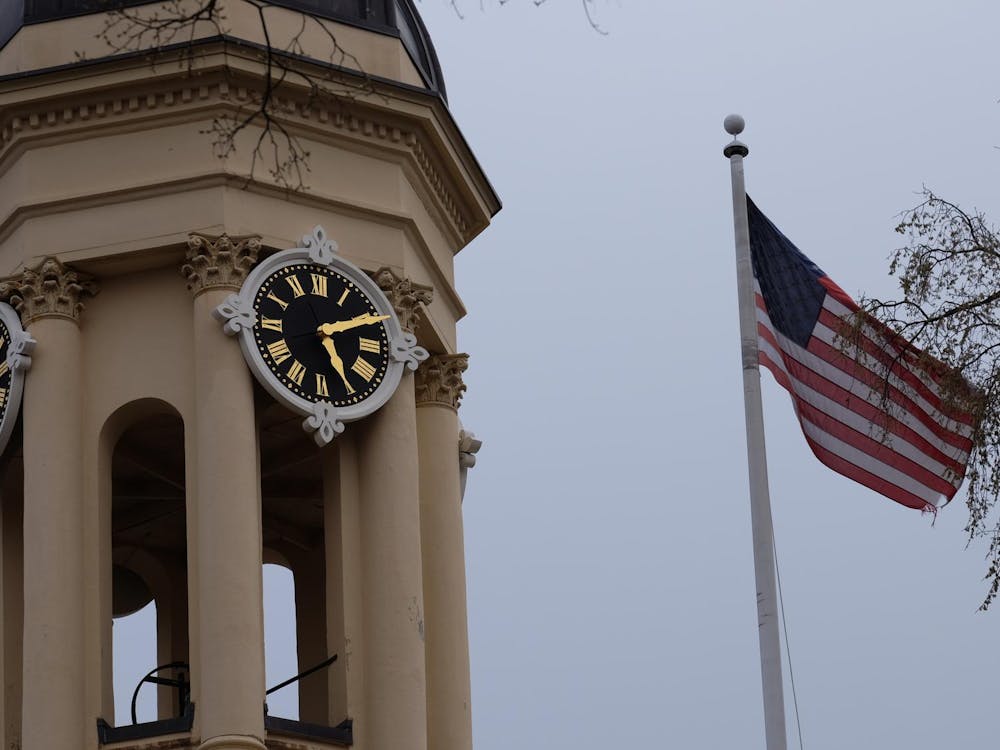"What am I doing at Princeton?"
During the Fall of my freshman year, I remember ceaselessly questioning my place here. Did Dean Fred make a mistake? What was I going to bring to this sacred place that someone else couldn't? Would I have the intellectual ability and personal motivation to prosper in the Ivory Tower?
The naivete, novelty and enthusiasm of freshman year gave way to the inflated confidence of being a sophomore (Greek for 'wise fool,' appropriately). I knew the Wilson college administrators, I had developed a saavy for paper-writing and selective reading, and I lived in the Zoo, boosting to dizzying heights my self-assurance. It was a wonderful, comfortable year, and I thought I had Princeton pretty much figured out. Boy did junior year come as a shock. Launched from the Wilson community into the random arrangement of upper-class housing, my foundations began to falter. Friends and communities reformed based on eating club affiliations, and I was once again looking up to the seniors, rather than being looked up to by freshmen. I soon came to realize that I in fact did not have my finger on the pulse of Princeton at all. I felt lost, lonely and shaken by the realities of junior year. Furthermore, I felt weary of the predictable lifestyle and schedule that is necessary for us to thrive here. To save my affection for Princeton, and to improve my understanding of it, I needed a change.
And so I hit the road. I decided the best way to learn to love this special place was to go as far away as possible. The day after Dean's Date I set out for a seven-month sojourn to South America. I lived for five months with a Chilean family and attended a public and private University in Santiago. Instead of messy roommates who didn't clean up their pizza boxes, I had a four year-old Chilean sister who would tug at my arm early in the morning to tell me she was going to teach me Spanish. Instead of walking safely and pleasantly to McCosh to hear lectures in German philosophy, I made a daily commute on a sleek French designed metro to study human rights in Latin America and the Socialist Revolution in Chile. Instead of making the familiar rounds at the Street I surfed pristine beaches, snowboarded fresh powder in the Andes, and even took a course in rock climbing.
For seven months Princeton was a little but a fond and lovely memory. Sure I kept in contact with friends, I spoke often with my Princeton JP advisor, and I checked the website so I wouldn't lose touch.
But I had a life in Chile. As I delved deeper into my Latin American studies, my Chilean friends and my affection for South American cultures, my opinions and feelings about Princeton began to change. I saw how my Chilean friends all lived at home, how the libraries were poorly stocked and inefficient, how curiosity and academic freedom were subordinate to performance and the practical utility of knowledge. I saw how universities and majors were starkly segregated according to economic status, how severely students are divided in a country that has not dealt honestly with its past, and how classes are often boycotted by students protesting inequitable access to higher education. I was even locked inside a law school during an intense standoff between students and police.
Students who studied in other countries in other situations surely learned different lessons. But whether we were in South America, South Africa or Europe, we have all come back with new perspectives on Princeton. We have well-informed perspectives and we understand why Princeton is unquestionably one of the most blessed and dynamic communities in the entire world. More importantly, we understand ourselves better, and the roles we are supposed to play here.
It is now of the fall of my senior year, and I am a changed person. I now know that I belong here, I understand how I specifically contribute to the Princeton community, and I realize that Dean Fred knew what he was doing. If you ever question the way you spend your time here, your answers may be waiting for you in a faraway place. Go seek them, and you will come back a better Princetonian. Andrew O'Riordan is a History Major from San Diego, CA who spent last Spring in Santiago, Chile. He can be reached at aoriorda@princeton.edu.







